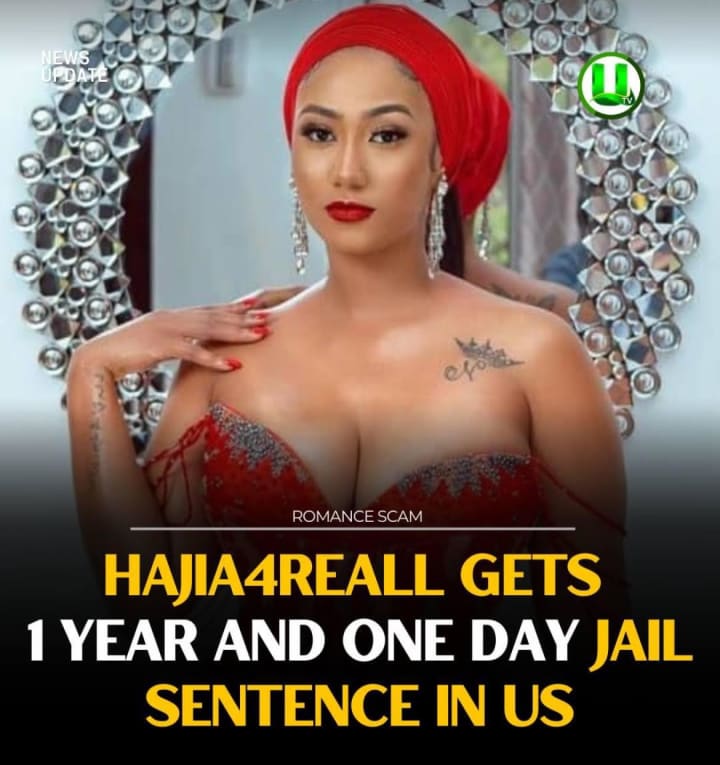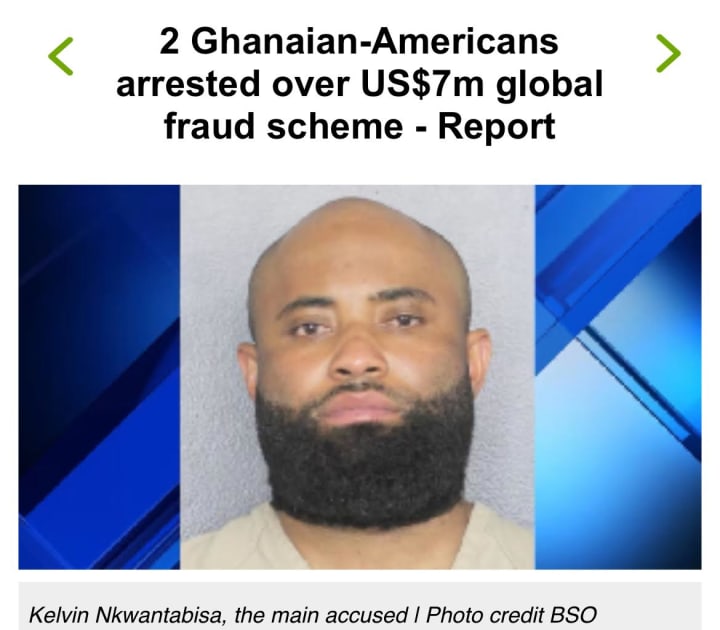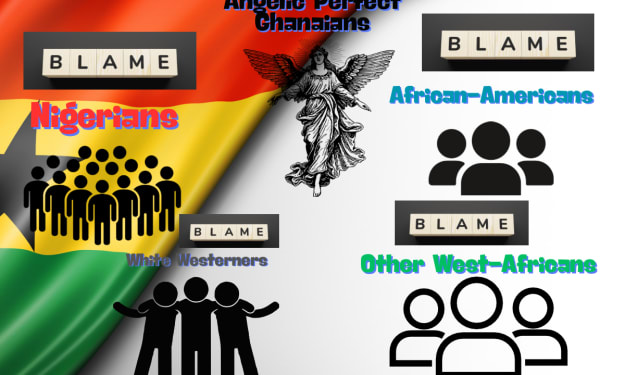Ghanaian Fraudster Gets 1 Year & 1 Day in Jail This Won't Deter Scammers in Ghana Africa's 2nd Most Scamming Country
Ghana is the 2nd country in Africa with the highest rate of scamming

Saturday, 29 June 2024
By: TB Obwoge
Ghana is ranked 2nd in Africa for scamming, just after the so-called giant of Africa Nigeria. However Ghanaians will often say that the scamming issues are all to blame on Nigerians.
According to Ghana local news one of the worst issues in Ghana is high youth unemployment.
Ghana is another African country that has become a hub for internet scamming. The country has a large population of young people who are well-versed in technology. They use their knowledge to carry out various forms of scams, including romance scams, lottery scams, and employment scams. Ghanaian scammers have been known to create fake profiles on dating sites and social media platforms to lure unsuspecting
To add to this romance scams are usually low priority for law enforcement, in Ghana there is little to no interest from the law enforcement. I and some other have nicknamed Ghana a lawless country.

When they news first hit in Ghana, many of the Ghanaians on the social media post on UTV Ghana's Facebook page were posting comments to let this scammer Haji4real go. Many said the UK based Ghanaian should simply be sent back to Ghana. The woman who not only scammed money from white people in the United States she also built a large soical media platforn where she could also earn money.

Scamming is so horrible in Ghana that several financial institution won't do any buisness or transaction in Ghana. If you say this to a Ghanaian their same generic responce is that scamming and fraud happen all over the world. Yet they don't care that Ghana is listed as second in Africa, something they'll blame an Nigerians.
Romance scams in Ghana are often and many Ghanaians want to get American citizenship or a green card, I have written about the Ghanaian father and son arrrested in the US for fraud. They lawyers were using a law created to protect women from abuse & domestic violence. Here you can read that article.
Here is a post on the American embassy in Ghana's offcial page, they can not help you regain your money or to get help from Ghana's law enforcement. More than likely your money is gone forever.
U.S. citizens should be alert to attempts at fraud by persons who profess friendship or romantic interest over the Internet, especially those claiming to be U.S. citizens living, traveling or serving in the U.S. military in Ghana. Correspondents’ quick transition to discussion of intimate matters could be an indicator of fraudulent intent. Correspondents may cultivate the relationship for several months before asking for money, but if they are after your money, eventually they will ask for it.
Before you send any money to Ghana, please take the time to do your research and inform yourself. Start by considering the fact that scams are common enough to warrant this warning. Next, look over this partial list of indicators. If any of them sound familiar, you are likely the victim of an internet scam.
You met a friend/fiancé online.
You’ve never met face to face.
Your correspondent professed love at warp speed.
Your friend/fiancé is plagued with medical or other life problems requiring loans from you.
You are promised repayment upon the inheritance of alluvial gold or gems.
You’ve sent large sums of money for visas or plane tickets but the person cannot seem to make it out of Ghana.
When your friend does try to leave the country, he/she gets into a car accident or is detained by immigration officials demanding payment, bribes, or proof of a certain amount of cash on hand for travel.
Your correspondent consistently uses lower case “i’s” and/or grammar not in keeping with their supposed life station or education level.
Cases bearing these and similar hallmarks have all proven to be scams intended to prey on sympathetic and compassionate U.S. citizen victims. We advise U.S. citizens not to send money to people they have never actually met. [Note: Even if the request comes from a family member or someone you have met, beware of “Grandparent Scams” and do not send money without first contacting the Office of Overseas Citizen Services.]
Many Americans have reported losing thousands of dollars through such scams. In the event you do lose money, be warned that your chances of getting it back are almost nil. These scammers work from internet cafés and are entirely portable and elusive. Furthermore, this type of crime is not a priority for local police and it is difficult to prosecute these cases. The Embassy can offer a sympathetic ear, share information on protecting yourself against such scams, and help you determine if your situation is real or fraudulent, but cannot do much else. Victims can report the scam to the FBI at www.ic3.gov and might also consider alerting the dating website on which the scammer was encountered.
The anonymity of the internet means that the U.S. citizen cannot be sure of the real name, age, marital status, nationality, or even gender of the correspondent. In the majority of cases reported to the Embassy, the claimed “U.S. citizen” correspondent turned out to be a fictitious persona created only to lure the U.S. citizen victim into sending money.
Please note that a fiancé(e) or spouse cannot simply come to the Embassy and apply for a visa to move to the United States. The process for obtaining a fiancé(e) or spouse visa must be initiated by the U.S. citizen with U.S. Citizenship and Immigration Services. U.S. citizens may refer to U.S. Citizenship and Immigration Services or the Bureau of Consular Affairs for authoritative information about the immigration process and the true costs involved. The Bureau of Consular Affairs also has additional information on Internet Dating and Romance Scams.
If you suspect you may be the victim of a scam, please read through our information on Resources for Victims of International Financial Scams. In the aftermath of a scam, some people have also found camaraderie with in-person or online support groups which help underscore the breadth of the problem and allow people to see they are not alone.
Source American Ghana Embassy Website
©️TB Obwoge 2024 All Rights Reserved
About the Creator
IwriteMywrongs
I'm the president of a nonprofit. I've lived in 3 countries, I love to travel, take photos and help children and women around the world! One day I pray an end to Child Marriages, Rape and a start to equal Education for ALL children 🙏🏽
Enjoyed the story? Support the Creator.
Subscribe for free to receive all their stories in your feed. You could also pledge your support or give them a one-off tip, letting them know you appreciate their work.






Comments
There are no comments for this story
Be the first to respond and start the conversation.